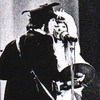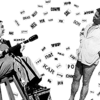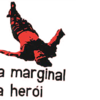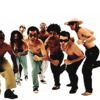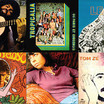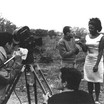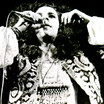Ilumencarnados seres

nelson motta
Testimonials
During a summer night, a little before the carnival of 1968, I spent hours having beer and talking to Glauber Rocha, Cacá Diégues, Gustavo Dahl and Luiz Carlos Barreto at Bar Alpino, in Ipanema. Enthusiastic about Cinema Novo (New Cinema), Teatro Oficina, Gil and Caetano’s albums, excited about the political moment and about that artistic movement which still had not been articulated and had no name but, nevertheless, was blossoming with so much novelty and polemic, we started to imagine a big party to celebrate this new movement.(…) The following day, given the dramatic lack of news that torments the columnists during the Carioca summer, I used my whole columns to report, in the form of a debauched manifesto, all the nonsense we had imagined at Alpino. Under the title of “Cruzada tropicalista” (Tropicalista Crusade), I irresponsibly filled half a newspaper page celebrating the artistic movement with a future hypothetical party.(…) The party never happened, but the column reverberated largely and was surprisingly taken seriously, passionately commented in favor of and against in other newspapers, on the radio and on television, which from then on referred to Gil and Caetano’s movement as Tropicalismo.
Just as it had happened with bossa nova, at the beginning no one knew exactly what Tropicalismo was. Neither Caetano nor Gil did, and let alone I, who, nevertheless, talked about it everyday in the newspaper column and ardently defended the movement on television programs. They represented the modern, the revolutionary, the international: the youth.
One year later, after “Alegria, alegria” and “Domingo no parque”, music with electric guitars and British influence would not surprise that audience, on the contrary, they represented the kind of music which many had already assimilated, which they liked and even expected from Gil and Caetano. Tropicalismo did not scare anyone anymore.(…) They only did not expect what actually happened: wearing futuristic-plastic clothes, Caetano and Os Mutantes went on stage to perform “É proibido proibir” under boos and applause.
Many still expected another marcha with a cinematographic lyric such as “Alegria, alegria”, even with guitars, or something like the effervescent “Superbacana,” or even a rumba in Portunhol (mixture of Portuguese and Spanish) like “Soy loco por ti, América,” composed by Gil and Capinam as a tribute to Che Guevara on the day of his death. But never an antimusic like that, with that long and provocative introduction screamed by the Mutante’s guitars and by the intentional buzz of Rogério Duprat’s orchestra, with that fragmented and metaphoric lyric ending in a chorus which took hold of the French students’ slogan(…).
In the middle of the song, when the hippie howler came on stage, the boos became so massive and boisterous that Caetano and Os Mutantes tried to sing, but could not hear each-other, while tomatoes and eggs flew onto the stage. Caetano stopped singing and furiously shouted to the audience:
“But is this the youth that wants to take the power? You have the guts to applaud this year a song you would not have had the guts to applaud last year! You are the same youth who will always, always kill tomorrow the ancient enemy who died yesterday! You are not understanding anything, absolutely nothing.”
During the festival, as a counterpoint, Gil, Caetano and Os Mutantes performed at Ricardo Amaral’s nightclub, Sucata. Polemic, scandals, boos and enthusiastic applause, passionate arguments in the press, full house: everybody wanted to see what they were doing. Even Elis (Regina), who watched discreetly and discreetly hated. I watched them many times, sitting on a chair, standing, sitting on the floor: it was an explosion of novelty and aggressiveness, with Hélio Oiticica’s flags portraying the outlaw “Cara de cavalo” killed by the police with the inscription “Be a marginal, be a hero,” and others saying “Yes, nós temos bananas” (Yes, we have bananas). The show would finish with the song “É proibido proibir” (It’s forbidden to forbid.) Yet it ended up forbidden: a district attorney along with a chief of police went there, demanding that the “Cara de cavalo” flags be removed and, worse, demanding that Caetano sign a document declaring not to speak during the shows anymore. Indignant, Caetano refused to do it and the show was over at that very moment. The next day, he dictated and I published in the column: “the important thing is not to make concessions to repression; thus, I will keep acting regardless of where this might lead me or my career. We are the incarnated revolution.”
In the beginning of December, the worst happened: AI-5 (Constitutional Act Nº5) was edited. Total censorship, heavy repression, annulment and arrestments: terror. Soon after Christmas, Gil and Caetano were imprisoned.
Noites Tropicais – solos, improvisos e memórias musicais, Editora Objetiva, 2000
(extracts selected by the author)






